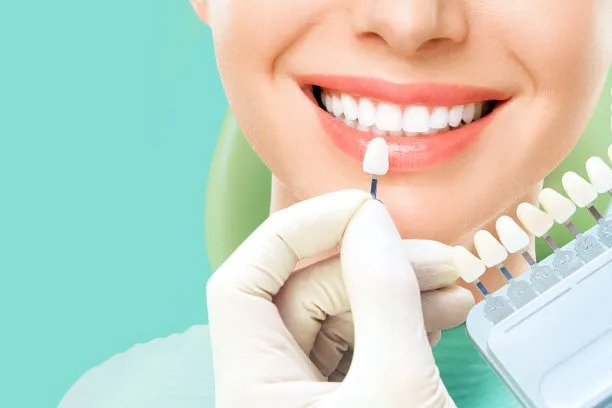The Essential Guide to Preparing for a Tooth Extraction and What to Expect Afterwards
Summary: Preparing for a tooth extraction can be a daunting process, but understanding what to expect can ease anxiety and ensure a smooth experience. This guide covers four essential aspects of preparation: the reasons for tooth extraction, pre-extraction preparations, what to expect during the procedure, and the recovery process. By familiarizing yourself with these stages, you can approach your dental extraction with confidence, knowing how to minimize discomfort and promote healing afterwards. Each section provides actionable advice and insights to help you navigate this common dental procedure, making the necessary steps clearer and more manageable.
1. Understanding the Reasons for Tooth Extraction

Tooth extractions can occur for several reasons, and comprehending these can help in understanding the necessity of the procedure. Common indications include severe tooth decay, which compromises the integrity of the tooth, or gum disease, which can lead to infection and further health issues. Knowing that extractions often serve a preventive purpose can alleviate some of the worry associated with this dental procedure.
Another reason for extraction is overcrowding, where there’s insufficient space in the mouth for all teeth. In such cases, orthodontic treatment might require specific teeth to be removed to ensure effective realignment. Understanding these factors helps patients see the procedure as a step toward maintaining overall oral health rather than just a loss.
Moreover, impacted wisdom teeth can cause pain and even damage to adjacent teeth or the jawbone. Many dentists recommend their removal as a preventive strategy to avoid future complications. Clarifying these reasons raises awareness and prepares patients emotionally for their upcoming extraction.
2. Pre-Extraction Preparations for Patients
Before undergoing a tooth extraction, adequate preparation can significantly contribute to the success of the procedure. Firstly, scheduling a thorough consultation with your dentist will allow for specific questions to be addressed and the process to be clearly laid out. During this visit, a comprehensive dental examination and X-rays may be performed to determine the best approach for the extraction.
Secondly, inform your dentist of your medical history, including any medications you are on or underlying health conditions, as these can influence how the procedure is performed. It is also crucial to clarify whether you have any allergies, especially to anesthesia, to avoid complications during the extraction.
Lastly, following your dentists instructions regarding fasting before the extraction—especially if sedation will be used—ensures a smoother procedure. Proper hydration and a good night’s sleep before the appointment can also enhance overall comfort and recovery while minimizing anxiety.
3. What to Expect During the Tooth Extraction
During the actual tooth extraction, patients can expect the process to be relatively quick and straightforward, although sensations may vary depending on anxiety levels and sedation options. Typically, the dentist will first administer a local anesthetic to numb the area around the tooth. This step is crucial in helping to alleviate pain and discomfort during the procedure.
Following anesthesia, the dentist will use specialized instruments to loosen the tooth from its socket. In some cases, particularly with impacted teeth or those with multiple roots, a surgical extraction may be necessary, but your dentist will guide you through this more complex process. Understanding these steps can ease worries about what might be happening during the extraction.
Patients are often surprised by how quickly the extraction concludes. The complete procedure can take anywhere from 20 minutes to an hour, depending on the tooths position and complexity. Post-extraction, your dentist will provide information on what to expect in terms of discomfort and recommended care to facilitate healing.
4. Recovery Process After a Tooth Extraction
The recovery process after a tooth extraction is critical for healing and minimizing discomfort. Initially, its normal to experience swelling, tenderness, and some bleeding. Applying an ice pack to the outside of the jaw for the first few hours can help manage swelling and soothe pain.
Furthermore, following the aftercare instructions prescribed by your dentist—such as taking prescribed medications, avoiding certain foods, and maintaining oral hygiene—is essential. Soft foods are recommended for at least the first few days, and avoiding straws is crucial as suction can dislodge blood clots and lead to complications like dry socket.
Finally, regular follow-up appointments help ensure that healing is progressing as expected. Observing any unusual symptoms, such as excessive pain or prolonged bleeding, should prompt immediate consultation with your dentist. Being vigilant during recovery can enhance overall outcomes and lead to a successful return to normal activities.
Summary:
Tooth extractions may seem intimidating, but with careful preparation and understanding of the entire process, patients can navigate these procedures with ease. From knowing the reasons behind extractions to adhering to pre- and post-operative care, each phase plays a vital role in achieving a successful outcome.
This understanding not only alleviates fear but also enables patients to take an active part in their oral health journey. Knowledge is empowerment, especially in the realm of dental care.
This article is compiled by Vickong Dental and the content is for reference only.


